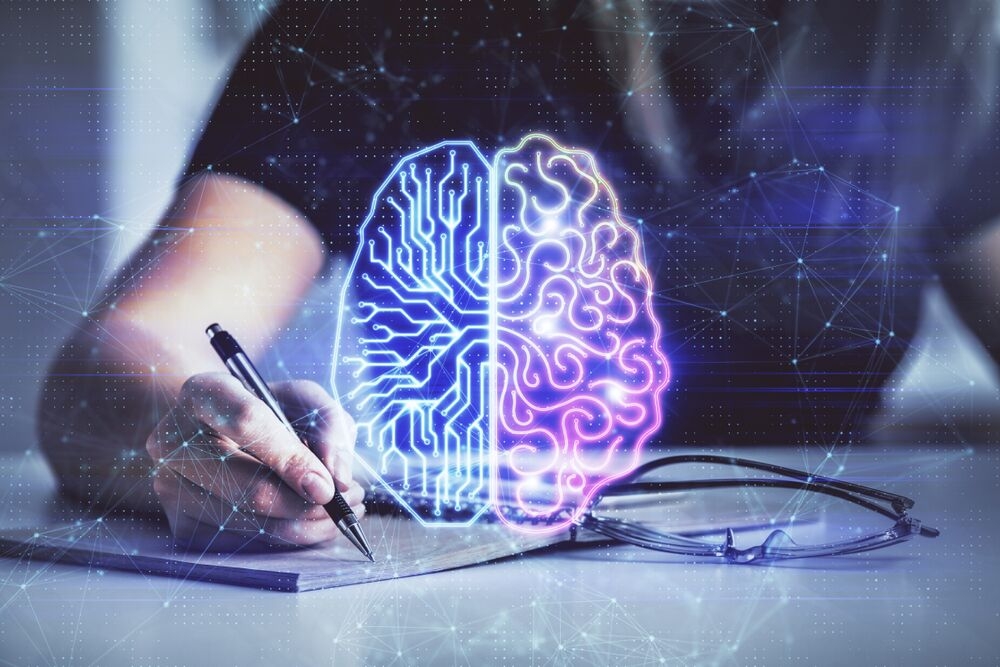The Five Stages Of Memory
Memory is a fascinating and intricate facet of human cognition. The mental process allows us to acquire, retain, and recall information and experiences over time.
Serving as the bedrock for our ability to learn, adapt, and navigate life's complex tapestry, memory is more than a passive storage for facts and events. It is an active, dynamic system that underpins our identity, knowledge, and capacity for growth.
What Is The Importance Of Memory?
1. Teaching And Learning
Memory serves as the cornerstone of learning, allowing us to acquire knowledge, grasp new concepts, and build upon existing information. Students depend on memory to retain and recall information within academic environments.
2. Problem-Solving
Memory plays a crucial role in problem-solving by allowing us to leverage past experiences and existing knowledge to devise solutions for new challenges. It assists in recognizing patterns, establishing connections, and applying acquired insights to navigate novel situations.
3. Personal Identity
Memory is an inseparable aspect of our self-awareness, storing our experiences and past relationships. Our memories play a pivotal role in shaping our identity, offering insights into who we are and our origins.
4. Communication
Memory is crucial for facilitating effective communication, allowing us to remember words, meanings, and the context of conversations. Without memory, meaningful and purposeful communication would be nearly impossible.
5. Maintaining Relationships
Memory empowers us to recall vital details about our relationships, including the names of our loved ones, shared experiences, and emotional connections. This capability contributes to maintaining strong bonds and emotional attachments.
6. Daily Activities
Memory is crucial for daily activities, allowing us to remember appointments, tasks, and schedules. Without memory, we would struggle to organize our lives.
7. Adaptation And Survival
Memory plays a pivotal role in adaptation and survival, aiding us in remembering critical situations, learning from mistakes, and making informed decisions to prevent harm.
What Are The Five Stages Of Memory?
Memory is a complex cognitive process that involves several stages, which are:
1. Sensory Memory
This marks the first stage in the memory process, where sensory information from the environment undergoes initial encoding. Information from our senses, like what we see and hear, is temporarily stored in sensory memory. However, this information has a very brief duration, typically lasting only a few seconds, and is often forgotten unless transferred to the next stage—short-term memory.
2. Short-term memory
Also referred to as working memory, short-term memory serves as a temporary storage and processing hub for information. It operates within a limited capacity and timeframe, usually spanning from a few seconds to just a minute. This cognitive mechanism allows you to retain data for short-term tasks, such as remembering a phone number long enough to make a call or following a set of instructions. However, if the information is deemed important or relevant, it will then be transferred to long-term memory.
3. Encoding
This phase encompasses converting sensory inputs and short-term memories into a format suitable for storage in long-term memory. Encoding occurs through diverse methods, including visual encoding (for images or visual information), auditory encoding (for sounds), or semantic encoding (for meaning). The more intricate and meaningful the encoding process, the higher the likelihood of retaining the information in long-term memory.
4. Storage
Following information encoding, it must be stored for future retrieval. Long-term memory serves as the stage for storing information over an extended period, spanning from minutes to a lifetime. Long-term memory can further be classified into explicit (declarative) memory, encompassing facts and events, and implicit (non-declarative) memory, involving skills and habits.
5. Retrieval
Retrieval is the intricate process of accessing information stored in long-term memory and reintroducing it to conscious awareness. It involves recalling facts, experiences, or skills previously acquired. Diverse factors, including contextual cues and the strength of memory traces, influence the retrieval effectiveness. Occasionally, the retrieval process may not succeed, resulting in a sense of forgetfulness.

The Characteristics Of Short-Term Memory
Short-term memory, commonly referred to as working memory, is a fundamental element in the memory process. It plays a pivotal role in our daily cognitive functions. The following offers a detailed explanation of the nature of short-term memory:
1. Capacity
Short-term memory is inherently limited, typically thought to accommodate around seven items (plus or minus two), following George A. Miller's renowned concept of the 'Magic Number Seven.' This suggests that you can retain a modest amount of information in your short-term memory at any given moment.
2. Duration
Information in short-term memory is relatively brief, typically lasting from a few seconds to a minute or two unless actively rehearsed or transferred to long-term memory.
3. Function
Short-term memory is essential for various cognitive tasks, allowing you to temporarily retain necessary information and process it for immediate problem-solving, decision-making, and language comprehension. For example, it enables you to remember a phone number long enough to dial it or retain a portion of a sentence while processing the rest.
4. Role in Memory Processing
The information residing in short-term memory can undergo processing, encoding, and transfer to long-term memory if it is deemed important or relevant. However, without such transfer or active rehearsal, it may be easily forgotten, making room for new information to take its place.
The Characteristics Of Short-Term Memory
1. Permanent Storage
Information reaching long-term memory can be stored for an extended period, allowing us to retain a vast amount of information throughout our lives, including facts, experiences, and skills.
2. Unlimited Capacity
Unlike short-term memory, long-term memory boasts essentially unlimited capacity. It allows for storing a vast amount of information, and its capacity doesn't diminish with continuous use.

Types Of Long-Term Memory
1. Declarative Explicit Memory
This category encompasses factual information, events, and personal experiences. It is further divided into two subtypes: episodic memory, which involves specific personal experiences, and semantic memory, which includes general knowledge and facts.
2. Non-declarative Implicit Memory
It includes skills, habits, and conditioned responses. Implicit memory is often not consciously recalled but influences our behavior and performance.
Common Causes Of Memory Loss
Forgetting or the inability to retrieve information from memory can stem from various causes, a shared experience among many individuals. The following provides a detailed explanation of some common reasons for memory loss:
1. Natural Aging
Forgetting things occasionally is a normal aspect of aging. As people grow older, they may encounter declines in cognitive abilities, including memory. This is commonly known as age-related cognitive decline, impacting both short-term and long-term memory, although it's typically not severe.
2. Stress And Anxiety
High stress and anxiety levels can impact memory. Stress hormones affect the hippocampus, a crucial part of the brain for memory formation and retrieval. Chronic stress can lead to ongoing memory issues.
3. Lack Of Sleep
Sleep is crucial for memory consolidation. Inadequate or disrupted sleep can lead to memory-related issues. During sleep, the brain processes and stores information acquired during the day.
4. Substance Abuse
Excessive alcohol or drug use weakens memory and cognitive function. Both short-term and long-term memory are affected by substance abuse.
5. Diet and Nutrition
Ensuring a well-balanced diet is essential for overall brain health. Deficiencies in crucial nutrients, like vitamin B12, can adversely impact memory functions.
Memory And Alzheimer
Alzheimer's disease is a progressive neurological disorder primarily impacting memory and cognitive function. The effect on memory is profound and evolves as the disease advances. Below is a detailed explanation of how memory is affected in individuals with Alzheimer's disease:
1. Short-Term Memory Impairment
- Individuals with Alzheimer's disease often face significant challenges in short-term memory, experiencing difficulty recalling recent events, conversations, or details of their daily routines.
- This is evident through repetitive questioning, recurrent forgetfulness of appointments, or consistently misplacing items.
2. Confusion About Time And Place
Individuals with Alzheimer's disease frequently experience confusion regarding both time and place, often struggling to discern the current date or their present location. This disorientation can extend to losing the sense of time, making it challenging for them to differentiate between day and night.
3. Communication Challenges
- Individuals affected by Alzheimer's disease often face obstacles in engaging in conversations. This can lead to difficulties in tracking discussions, repeating information, and recalling the names of familiar individuals.
- Moreover, they gradually struggle more to engage in purposeful conversations and recall recent interactions.
4. Gaps in Long-Term Memory
Over time, Alzheimer's disease leads to gaps in long-term memory, including forgetting important life events, personal experiences, and even the names and faces of close family members and friends.
5. Inability To Recognize Loved Ones
As Alzheimer's disease progresses, individuals affected by it may encounter difficulties in recognizing their loved ones, including spouses, children, and even themselves in the mirror.
6. Loss Of Familiar Skills
The progression of Alzheimer's disease leads to the loss of familiar skills and abilities, such as cooking, driving, or self-care routines, and these skills may be completely forgotten.
In Conclusion
Memory is a precious treasure and a dynamic vessel that safeguards both precious moments and painful memories. It acts as the storehouse of knowledge, containing facts, figures, scientific principles, and cultural heritage. Moreover, it stands as the guardian of personal narratives, encapsulating a lifetime of laughter and tears. Without memory, we would find ourselves engulfed in an eternal present, incapable of learning from the past or foreseeing the challenges that lie ahead.